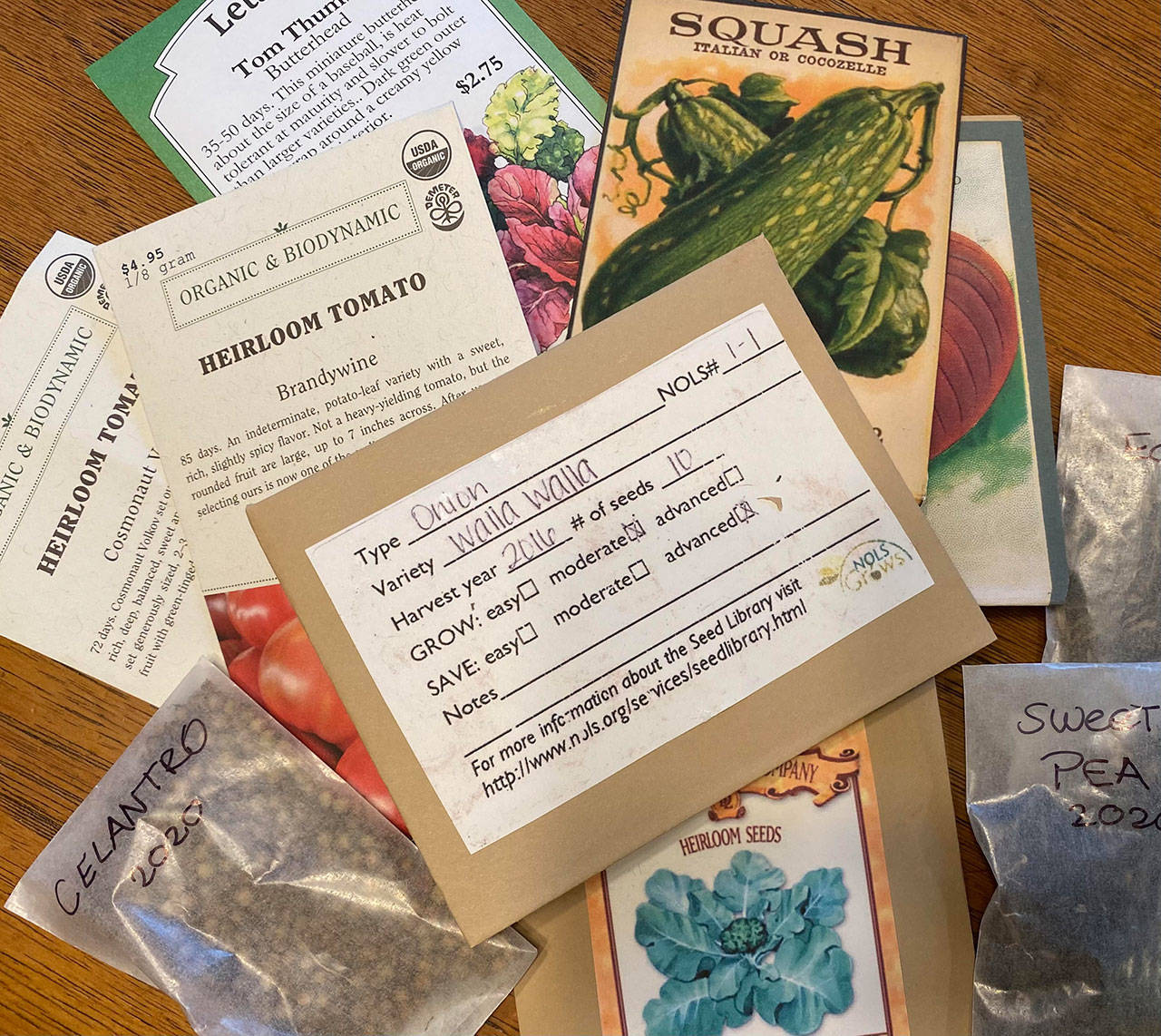Heirloom vegetable and fruit varieties have become enormously popular with both home and market gardeners. Before we talk about “why,” let’s begin with a broad definition of heirloom seeds.
Heirloom, also called ”heritage” seeds are old varieties of “open-pollinated” seeds (seeds pollinated by the wind and insects) that produce plants that resemble the parent plant. Included are “family favorites” that were saved and passed down from generation to generation. Many of these popular old varieties are also available through seed companies and seed exchanges.
Seed companies have further expanded their heirloom seed selection by introducing “new heirlooms.” These are heirloom varieties that have shown new desirable traits. Seeds harvested from the most robust of these plants are marketed as ”new heirloom” seeds.
In contrast to open-pollinated heirlooms, there are F-1 hybrids. F-1 hybrids are usually developed by carefully crossing two different varieties, each having a desirable characteristic, to produce a highly desirable plant. F-1 hybrids are frequently developed for the commercial market and offer desirable traits such as resistance to blight and wilt, uniform size, longer storage, and ease of picking and transportation.
Seeds from an F-1 hybrid rarely produce plants like the parent and therefore their seeds are not suitable for saving and planting.
Attraction to heirlooms
Why is there so much interest in heirloom seeds? The reasons for planting heirloom seeds may be as numerous as the varieties available! Many people see growing old varieties and saving seeds as a way to prevent these varieties from becoming extinct or a way to preserve genetic diversity.
Many people believe the old varieties have more flavor and color and are more dependable producers than the newer varieties. Families often see heirloom seeds as a tangible connection to their ancestors.
Some people want to prevent commercial seed companies from determining/controlling the varieties available to the consumer.
Decisions, decisions
How do you decide what seeds to purchase? Whether the seeds are heirloom or hybrid, be sure to read the description on the seed packet carefully so you know the characteristics you are getting. Focus on varieties that are appropriate to your micro-climate as well as on vegetables and fruits your family will enjoy. Seeds that develop into plants that “ … produce abundantly even in the long hot days of summer … ” will probably have a limited production in the cool, shorter season of the North Olympic Peninsula.
Seeds from varieties grown locally that have been producing successfully for many years will likely have characteristics that withstand local conditions.
If food production is the primary reason you are growing vegetables, focus the majority of your gardening efforts on varieties that you and your family like to eat and produce consistently in the Pacific Northwest environment. Limit “experiments” to a few each year.
To improve your garden from year to year, keep a record of what you plant: variety/name of crop, seed (or plant) producer, planting date, soil/air temperature at time of planting, and depth/spacing/watering/amendments used. A diagram of the planted garden will enable you to plan year to year crop rotation.
Throughout the season, record how well each variety produces, how varieties compare in taste/texture, and the varieties you want to plant again. Enjoy bright splashes of color in your vegetable garden by planting marigolds, calendula and violas.
Gardening is a special experience, take the time to enjoy it.
Judy English is a WSU-certified Clallam County Master Gardener.


